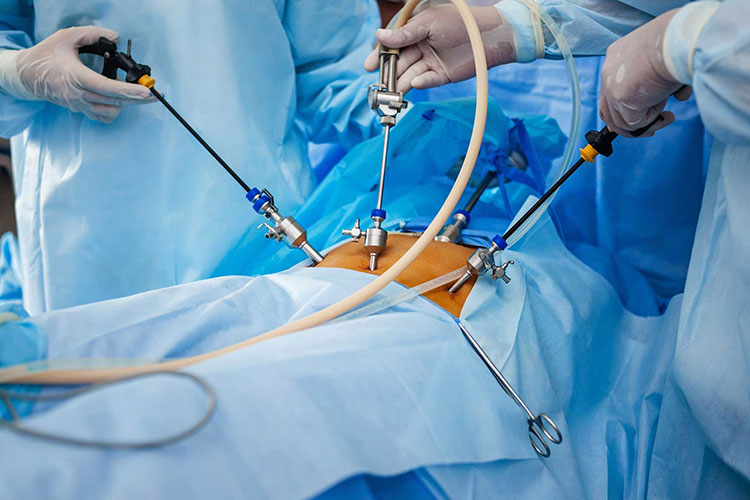
A Laparoscopic Surgeon is a medical professional who specializes in performing minimally invasive surgeries using a technique called laparoscopy. Instead of making large incisions, laparoscopic surgeons operate through small cuts using a tiny camera (called a laparoscope) and specialized instruments.
Absolutely! Here’s a detailed overview of a Laparoscopic Surgeon, including their training, skills, procedures performed, and the advantages of laparoscopic techniques:
🩺 Laparoscopic Surgeon: In Detail
🔍 Who Is a Laparoscopic Surgeon?
A Laparoscopic Surgeon is a specialist trained to perform surgeries using minimally invasive techniques, particularly laparoscopy. This surgical method involves inserting a laparoscope (a thin tube with a high-resolution camera and light) through small incisions in the abdomen or pelvis to view internal organs and perform operations without the need for large cuts.
🎓 Education & Training
To become a laparoscopic surgeon, one must undergo:
- Medical School (MBBS/MD): 5–6 years
- General Surgery Residency: 3–5 years of specialized surgical training
- Fellowship in Laparoscopic/Minimal Access Surgery: 1–2 years (optional but preferred)
- Advanced Laparoscopic Training/Workshops: Continuous skill development in advanced procedures
Many surgeons also become members of professional bodies like:
- Society of American Gastrointestinal and Endoscopic Surgeons (SAGES)
- European Association for Endoscopic Surgery (EAES)
- Indian Association of Gastrointestinal Endo-Surgeons (IAGES)
🔧 Techniques Used
- Conventional Laparoscopy: Uses small incisions and rigid instruments.
- Single-Incision Laparoscopic Surgery (SILS): Only one incision, usually at the navel.
- Robotic-Assisted Laparoscopy: Enhanced precision using robotic systems (e.g., da Vinci).
- 3D/4K Laparoscopy: Improves visual accuracy for complex procedures.
🛠️ Common Surgeries Performed
A laparoscopic surgeon may specialize in one or more fields:
🧬 General Surgery
- Laparoscopic Cholecystectomy: Gallbladder removal
- Appendectomy: Appendix removal
- Hernia Repair: Inguinal, umbilical, or incisional hernias
- Adhesiolysis: Removal of abdominal adhesions
⚖️ Bariatric (Weight-Loss) Surgery
- Laparoscopic Sleeve Gastrectomy
- Gastric Bypass
- Adjustable Gastric Banding
🩺 Colorectal Surgery
- Resection of colon or rectum for cancer, diverticulitis, or IBD
⚕️ Gynecologic Surgery
- Laparoscopic hysterectomy
- Removal of ovarian cysts
- Treatment of endometriosis
💡 Benefits of Laparoscopic Surgery
- Smaller incisions (usually 0.5–1.5 cm)
- Less pain and blood loss
- Reduced risk of infection
- Faster recovery and shorter hospital stay
- Minimal scarring
- Quick return to daily activities
🧠 Skills & Qualities of a Laparoscopic Surgeon
- Excellent hand-eye coordination
- Dexterity in using laparoscopic instruments
- Precision and patience
- Good visual-spatial awareness
- Ability to make quick decisions in complex scenarios
- Strong foundational knowledge of anatomy and pathology
📈 Trends and Future
Laparoscopy is increasingly becoming the gold standard for many surgical procedures. With advancements in robotic surgery, artificial intelligence, and 3D visualization, the field is evolving toward greater safety, precision, and patient comfort.
Would you like a comparison between laparoscopic and open surgery, or are you exploring this as a career option?


